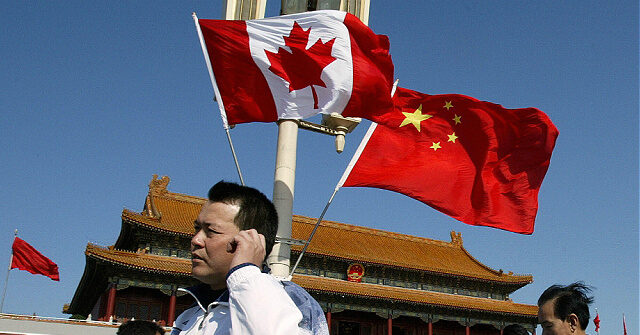On a recent Saturday, China’s Foreign Ministry announced that it had frozen the assets of two Canadian human rights organizations, the Uyghur Rights Advocacy Project (URAP) and the Canada Tibet Committee. This decision is seen as retaliation against these groups for their advocacy on behalf of oppressed communities, specifically Uyghur Muslims in Xinjiang and Tibetans in Tibet. The sanctions specifically target twenty individuals associated with the two organizations, with the bulk being members of URAP. The consequences of these sanctions are harsh; the groups are now prohibited from conducting business with any Chinese entities, while their members face travel bans to China, Hong Kong, and Macau.
The Chinese regime characterized these sanctions as “countermeasures” under the Anti-Foreign Sanctions Law; however, details about the specific motivations were not disclosed. It is widely believed that these actions correspond to Canada’s sanctions imposed on eight Chinese officials earlier that month on December 10, coinciding with International Human Rights Day. Canada’s sanctions were directed at high-ranking officials, including former party leaders in Tibet and Xinjiang, citing their involvement in grave human rights violations, including arbitrary detention and religious persecution of minorities in those regions.
In response to these developments, Canada has maintained its stance on condemning human rights violations perpetrated by the Chinese government. The Canadian Foreign Ministry reiterated its commitment to pressuring China to adhere to its international human rights obligations. Canadian Foreign Minister Melanie Joly specifically emphasized Canada’s concerns about the treatment of Falun Gong practitioners, highlighting Canada’s broader focus on human rights in its foreign policy. This ongoing tension underscores the fractured diplomatic relationship between Canada and China, driven largely by issues relating to human rights practices in the latter country.
Despite the punitive measures imposed by China, leaders from both URAP and the Canada Tibet Committee have expressed a resilient spirit. Mehmet Tohti, Executive Director of URAP, stated that their organization views the sanctions as a “badge of honor,” asserting that these actions will not deter their efforts but instead reinforce their commitment to advocating for the rights and dignity of oppressed populations. Similarly, the Canada Tibet Committee remarked that the sanctions only strengthen their resolve to fight against the oppression in Tibet, illustrating a readiness to face challenges posed by a powerful authoritarian state.
Legal experts have scrutinized China’s actions, with URAP legal adviser Sarah Teich labeling the sanctions as typical behavior from authoritarian regimes in response to criticism. She condemned the retaliatory measures against non-profit organizations, underscoring the moral and legal untenability of punishing advocates for human rights. Teich also raised concerns about the impact these sanctions could have on individuals with family ties in the People’s Republic of China, emphasizing the harmful ramifications of such retaliatory actions on innocent families.
In conclusion, the escalating tensions over human rights advocacy continue to have significant diplomatic implications between Canada and China. As both nations navigate this complex landscape, the situation highlights the broader struggle over human rights and the growing assertiveness of authoritarian regimes in punishing dissent. The unwavering resolve of human rights advocates in Canada demonstrates their commitment to justice amidst adversities posed by the Chinese government’s response, and they remain dedicated to employing their voices for the marginalized and oppressed, regardless of the threats they face.

